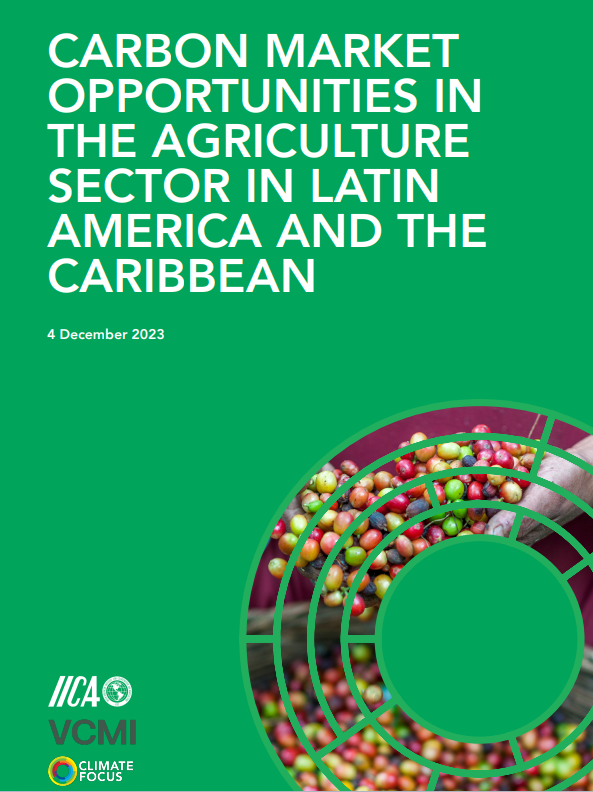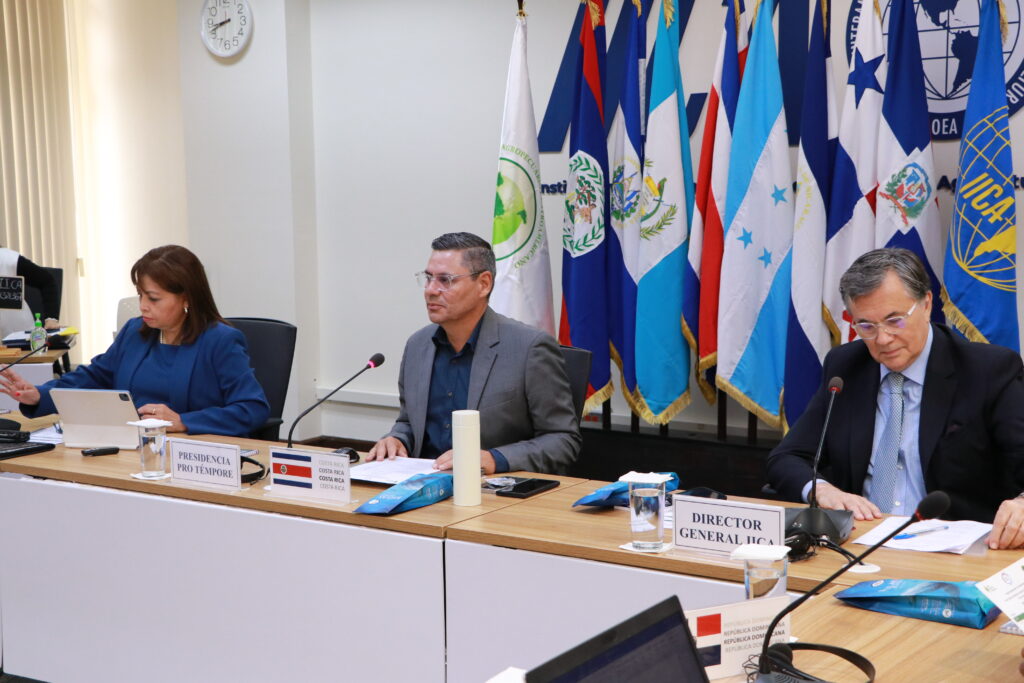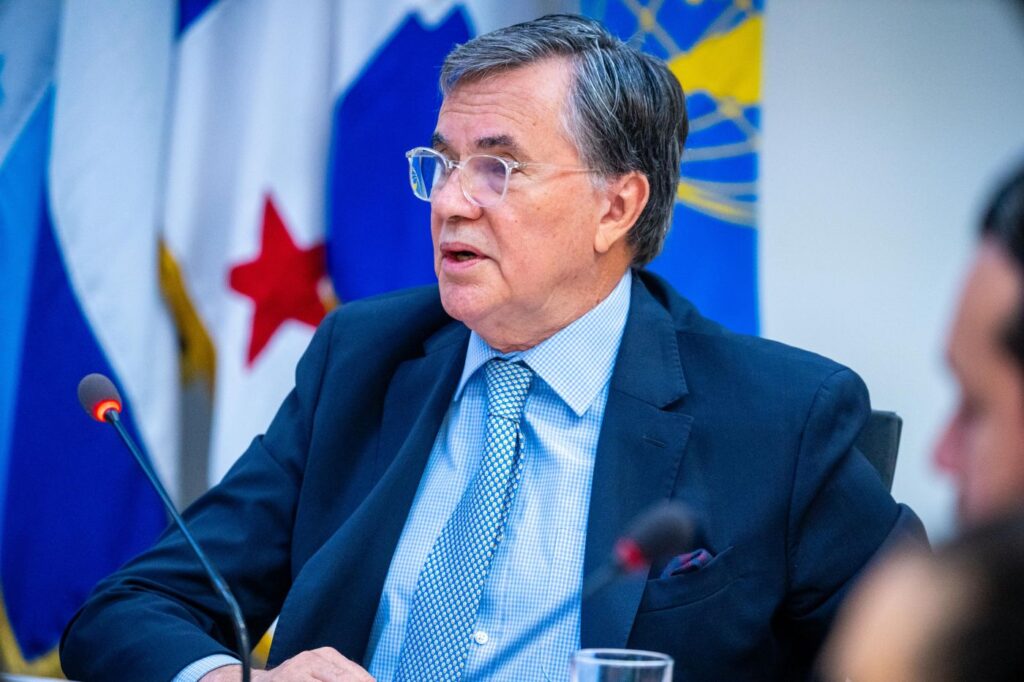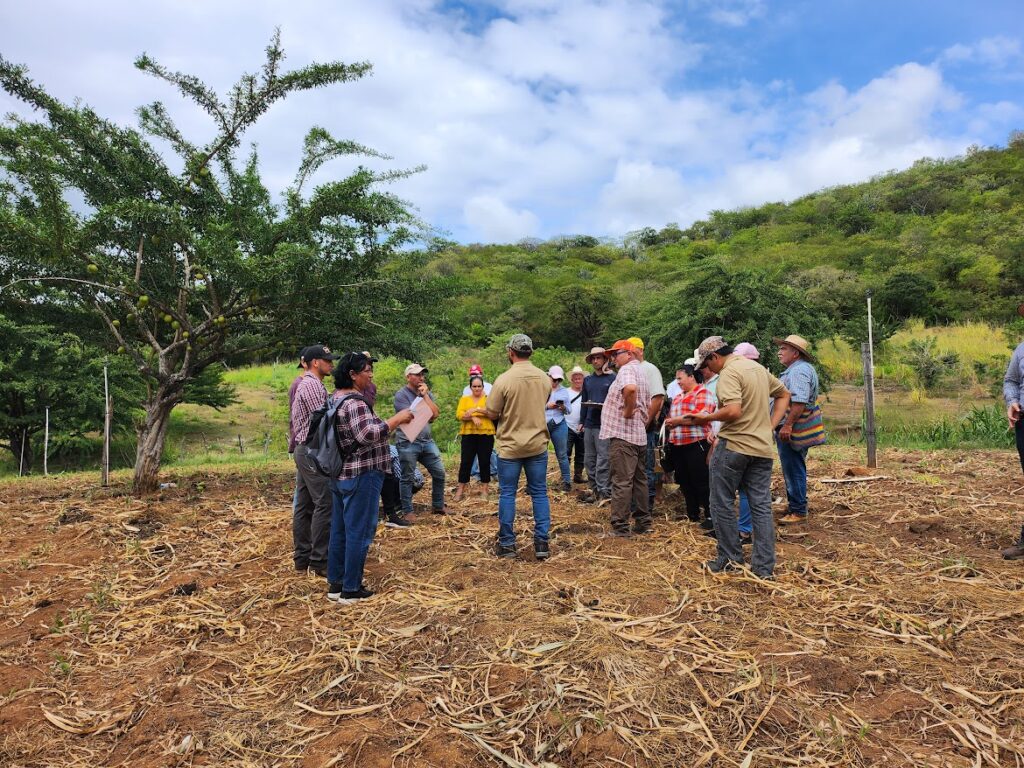El Instituto Interamericano de Cooperación para la Agricultura (IICA), la Iniciativa de Integridad del Mercado Voluntario del Carbono (VCMI), la Asociación Argentina de Productores en Siembra Directa (AAPRESID), el Grupo de Países Productores del Sur (GPS), el Departamento de Silvicultura de la Universidad Estatal de Michigan (MSU), Gold Standard, ACORN de Rabobank y Climate Focus unirán sus fuerzas en 2024 para respaldar el acceso del agro de América Latina y el Caribe al financiamiento de los mercados de carbono voluntarios y de cumplimiento.

San José, 13 de diciembre de 2023 (IICA) El Instituto Interamericano de Cooperación para la Agricultura (IICA), la Iniciativa de Integridad del Mercado Voluntario del Carbono (VCMI), la Asociación Argentina de Productores en Siembra Directa (AAPRESID), el Grupo de Países Productores del Sur (GPS), el Departamento de Silvicultura de la Universidad Estatal de Michigan (MSU), Gold Standard, ACORN de Rabobank y Climate Focus unirán sus fuerzas en 2024 para respaldar el acceso del agro de América Latina y el Caribe al financiamiento de los mercados de carbono voluntarios y de cumplimiento.
Este anuncio supone un avance significativo en el fomento de prácticas agrícolas sostenibles y en la lucha contra el cambio climático en la región.
En la actualidad, el financiamiento se sitúa muy por debajo del nivel requerido para implementar medidas de adaptación y mitigación en el sector agrícola de ALC, que cuenta con un inmenso potencial para atraer inversiones en acción climática y resiliencia mediante los mercados de carbono. Ello constituye un obstáculo significativo en una región donde la agricultura cumple una función clave en materia de desarrollo económico y medios de vida.
Para cerrar esta brecha es urgente brindar apoyo a los ministerios de agricultura, las organizaciones de agricultores y otras entidades de la región para que exploren opciones más amplias de financiamiento, aumenten los incentivos y desarrollen sus capacidades.
En el marco de esta nueva alianza estratégica los socios han expresado su intención de colaborar en el cumplimiento de los siguientes objetivos:
• Ampliar el acceso al financiamiento privado para el sector agrícola de ALC con el fin de acelerar la acción climática, incluso por medio de los mercados internacionales de carbono.
• Fortalecer las capacidades para contribuir al acceso inclusivo de los actores del sector agrícola y establecer acuerdos institucionales que propicien la instauración de mercados de carbono de alta integridad.
Manuel Otero, director general del IICA, comentó: “Estamos encantados de que socios tan fuertes se unan a nosotros para responder al llamado de los ministros de Agricultura de las Américas a ayudar a desarrollar capacidades en la región, a fin de acceder al financiamiento climático, que resulta tan fundamental para que la agricultura adopte medidas climáticas aún más contundentes.
A través de esta alianza, pequeños y medianos productores de la región contarán con herramientas y asistencia para acceder al financiamiento climático y los países de América Latina estarán más cerca de cumplir sus compromisos internacionales en materia ambiental, lo que dará una señal al mundo de que aquí la agricultura avanza firmemente hacia la sostenibilidad”.
Marcelo Torres, presidente de AAPRESID, declaró que en su organización “estamos muy interesados en respaldar iniciativas que ayuden a nuestros agricultores a acceder a los mercados de carbono. Esto supondría un paso importante hacia el reconocimiento del enorme esfuerzo que realizan cada día para reducir sus emisiones y maximizar el secuestro de carbono en sus suelos, por medio de prácticas como la siembra directa, la agricultura viva y la diversificada. Un esfuerzo que hasta ahora no había sido reconocido”.
El director ejecutivo de VCMI, Mark Kember, dijo: “El sector agrícola de toda la región de ALC tiene el potencial de atraer significativas inversiones privadas a través de mecanismos innovadores de financiamiento climático, como el mercado voluntario de carbono; sin embargo, se necesita apoyo técnico para que los gobiernos locales, los agricultores y los propietarios de fincas puedan participar y acceder a sus beneficios. Esta era la motivación original de la VCMI para apoyar este proyecto, por lo que nos complace que ahora se convierta en una alianza más amplia que ayude a poner en práctica y ampliar las oportunidades identificadas”.
El anuncio representa un hito en los esfuerzos de las organizaciones para hacer frente al cambio climático y acelerar la aplicación de prácticas sostenibles en la agricultura. Mediante el aprovechamiento de sus conocimientos especializados y recursos combinados, estas organizaciones unirán fuerzas para ofrecer nuevas oportunidades para la agricultura sostenible, con gran énfasis en los créditos de carbono de alta integridad. Estos créditos son una herramienta capaz de generar agroecosistemas muy resilientes, productivos y diversificados y de facilitar una mayor ambición climática relativa al logro y la mejora de las contribuciones determinadas a nivel nacional en la región, de conformidad con el Acuerdo de París.
El financiamiento del carbono se puede movilizar para ayudar a los agricultores a acelerar la transición hacia sistemas de producción más resilientes, ricos en carbono, productivos y diversificados. Además, el IICA, la VCMI y Climate Focus publicaron una “estrategia de acceso” a oportunidades del mercado de carbono en la producción ganadera y los sistemas agroforestales de cacao y café, diseñada para respaldar una transición verde en algunos de los subsectores agrícolas más destacados de la región.
En esta publicación se hace hincapié en que los esfuerzos se deben desarrollar con una sólida base científica, de forma inclusiva y transparente, por medio de la aplicación de salvaguardias sociales y medioambientales adecuadas, para llevar con eficacia este financiamiento a los agricultores y propietarios de fincas locales que más lo necesitan.
La alianza constituye la primera respuesta a un mandato político de alto nivel derivado de la Junta Interamericana de Gobierno, compuesta por los ministros de Agricultura de las Américas, quienes se reunieron en octubre en San José, Costa Rica, en una cita organizada por el IICA. Su desarrollo, derivado de una colaboración de seis meses entre el Instituto, la VCMI y Climate Focus, se dirige a apoyar el diseño y la elaboración de resúmenes de políticas y “estrategias de acceso” a mercados específicos del sector.
“La Alianza para el Carbono Agrícola es un gran paso hacia la oferta de soluciones climáticas naturales tangibles y el mejoramiento de la seguridad alimentaria. Estamos muy complacidos de ver cómo se unen la agricultura y la silvicultura, es decir, la agrosilvicultura, mediante esta alianza”, declaró Richard Kobe, profesor y presidente del Departamento de Silvicultura de la MSU.
Jelmer van de Mortel, presidente y fundador de ACORN, afirmó: “Apoyar a los pequeños agricultores en su transición climática, por medio de su vinculación con el mercado voluntario de carbono, es nuestra prioridad en la región de ALC. Junto con nuestros socios, podemos promover la aplicación de prácticas agrícolas climáticamente inteligentes, como la agrosilvicultura, para luchar contra el cambio climático, la inseguridad alimentaria y la degradación del suelo. Requerimos todas las manos a la obra y recibimos de buena manera la Alianza para el Carbono Agrícola como un paso en la dirección correcta”.
Marcelo Regúnaga, coordinador general de GPS, señaló que “el sector agroalimentario de las Américas tiene un enorme potencial para aportar simultáneamente soluciones a dos de los mayores desafíos globales de nuestro tiempo: el cambio climático y la seguridad alimentaria. El financiamiento resulta clave para fortalecer estas capacidades en la escala y los plazos que el mundo necesita. En GPS creemos que la plataforma es una gran iniciativa para promover el cumplimiento de este objetivo”.
La alianza incluirá actividades como el diseño de metodologías con integridad climática, la concienciación sobre las oportunidades que ofrece el mercado voluntario de carbono a través de las cadenas de suministro agrícola, trabajos de desarrollo de capacidades con herramientas prácticas y conocimientos para guiar a los agricultores mediante el desarrollo de proyectos de carbono y la implementación de mejores prácticas para garantizar la integridad y ayudar a los formuladores de políticas a crear un entorno propicio para el financiamiento o la inversión de alto valor en carbono.
Charlotte Streck, de Climate Focus, indicó: “Estamos orgullosos de ser un miembro de esta alianza, que tiene un gran potencial para obtener el tan necesario financiamiento para transformar el sector agroalimentario de América Latina, un sector que no ha sido suficientemente aprovechado en los esfuerzos globales para enfrentar el cambio climático, mejorar la resiliencia y cumplir los Objetivos de Desarrollo Sostenible. En la actualidad solo el 4.3 % del financiamiento mundial para el clima se destina al sector agroalimentario. Necesitamos un financiamiento mucho mayor para adoptar medidas significativas a gran escala en los ámbitos internacional y regional. Los mercados de carbono pueden contribuir de forma relevante a movilizar fondos para esta transición tan necesaria hacia un sector agrícola sostenible. Esta alianza constituye un catalizador para ello”.
Se insta a otras organizaciones interesadas en avanzar en este tema a considerar la posibilidad de unirse a la Alianza para el Carbono Agrícola en América Latina y el Caribe. Pueden escribir a agcpartnership@iica.int para más información acerca de cómo expresar su interés en convertirse en socio.
Más información:
Gerencia de Comunicación Institucional
comunicacion.institucional@iica.int










